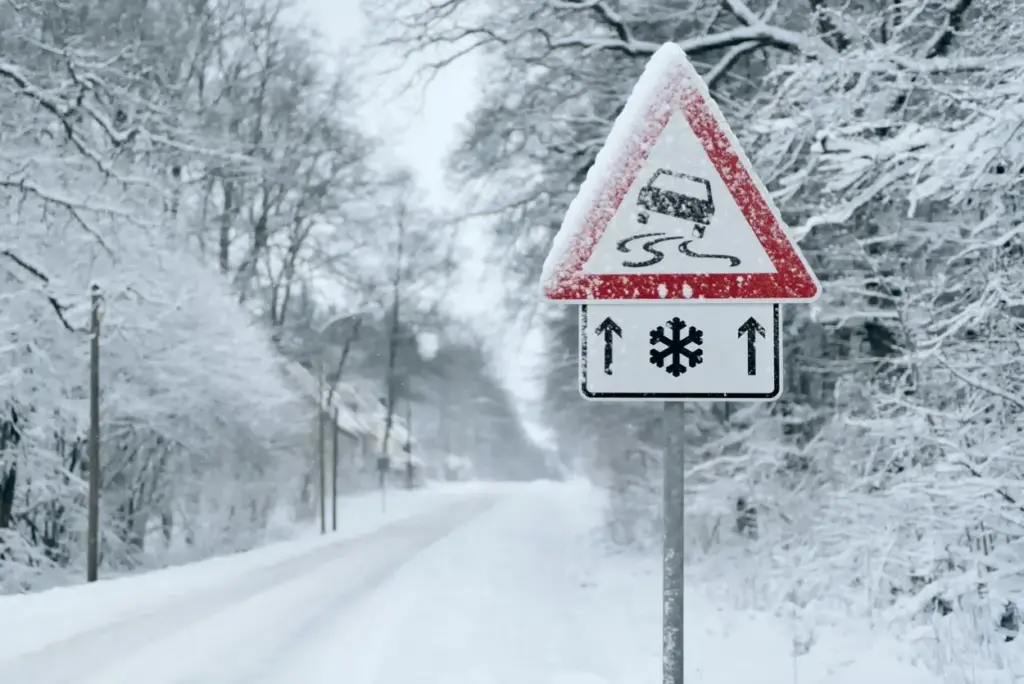Winter Vehicle Prep and Storage Tips

Imagine you’re at home, craving a snack, only to open the fridge and realize you’re out of groceries. Normally, you’d just hop in the car and head to the store, but when you glance outside, a fresh flurry of snow blankets the road, making travel feel a little more challenging.
Winter weather can complicate even the simplest trips, which is why preparing your vehicle for snowy conditions is so important before the season turns. Moreover, if your vehicle won’t be seeing much action in winter, there’s also the question of how to store it properly until next spring.
Fortunately, the Superior Storage team is here to share essential tips you need to know for prepping and storing your vehicle this winter, so you can confidently drive or store your car, motorcycle, or RV.
What Is the Best Vehicle for Winter Driving?
While there are a lot of great winter vehicle choices for people who expect to do work in the snow, such as those in construction and shipping, you don’t need to pick your personal vehicle based purely on winter conditions. Most coups, sedans, vans, trucks, and SUVs can handle winter weather with a few alterations to their parts and your driving style.
In reality, the best winter vehicles are the ones you properly prepare for snow and ice. Let’s break down the things you can do to your vehicle to achieve the best performance possible in the winter.
Vehicle Drivetrains for Winter Driving
Vehicles are typically equipped with one of four drivetrains: front-wheel drive (FWD), rear-wheel drive (RWD), all-wheel drive (AWD), or four-wheel drive (4WD). Each performs differently on snow-covered roads:
- Rear-Wheel Drive (RWD): This drivetrain is less effective in snowy conditions, as power is focused on the rear wheels, which are more prone to spinning on slick pavement.
- Front-Wheel Drive (FWD): FWD offers better control in the snow, as the powered front tires pull the vehicle forward, improving traction.
- All-Wheel Drive (AWD): AWD distributes power to all four tires, making it more capable of handling slick, icy roads.
- Four-Wheel Drive (4WD): Like AWD, 4WD provides power to all wheels and is especially effective in deep snow or off-road conditions.
Does this mean your front-wheel drive car is at a disadvantage in the snow compared to other drivetrains? Not necessarily, because tires can make a massive difference.
Winter Tires, Summer Tires, and All-Season Tires
Alt Text: A winter tire demonstrates the directional nature of the tread. (Source)
Just as you’d choose snow boots over flip-flops for a winter walk, you can change your vehicle’s tires to match the season.
- Summer Tires: Designed for dry roads, summer tires have a streamlined tread for a smooth, quiet ride. However, they lack the traction needed for snow or ice.
- All-Season Tires: These tires offer a balance of grip and noise reduction, making them suitable for a variety of road conditions year-round.
- Winter Tires: Made of softer rubber, winter tires stay flexible in cold weather, providing a superior grip on snow and ice. Their directional tread allows them to bite into snow rather than glide, making them the best choice for winter driving.
If you live in a snowy area, winter tires may be a worthwhile investment. Otherwise, all-season tires can handle mild winters while providing year-round convenience.
Can I Keep Winter Tires on All Year?
While snow tires are functional year-round, we don’t recommend keeping them on once winter ends. Their specific tread shape tends to produce more road noise on clear pavement, and the soft rubber wears down quickly against bare asphalt.
Before committing to winter tires, think about how much driving you’ll be doing in snowy conditions. Will your winter driving mostly take place on treated highways or unplowed, rural roads? If winter tires aren’t necessary for your area or driving needs, all-season tires should be a great choice for year-round convenience and performance.
Winter Storage for Your Vehicle
Alt Text: A woman cleaning snow from a windshield with an ice scraper. (Source)
Some vehicles, like motorcycles, RVs, and seasonal cars, don’t get much use in the winter. When vehicles sit idle for months, cold temperatures can harden and crack tires, while ice buildup can lead to loose panels and other forms of wear.
- Covered Storage: Keep your vehicle in a garage or under a carport to shield it from falling ice, snow, and debris.
- Vehicle Preparation: Wash and wax your vehicle before storage to prevent rust. Add a fuel stabilizer to the gas tank to protect the engine.
Superior Storage offers secure vehicle storage solutions to protect your car, motorcycle, or RV from the elements so it’s ready to use when the weather warms up.
Shield Your Car Gear with Climate-Controlled Storage
For even more peace of mind, opt for a climate-controlled storage unit. While not all vehicles can fit in these spaces, motorcycles and stored summer tires can benefit from the stability of temperature regulation, keeping them in the best conditions possible so they’ll be ready to use when the snow starts to melt.
Enjoy Peace of Mind with Winter Storage Solutions from Superior Storage
Ready to enjoy the winter without worrying about your car? For affordable self-storage options for your vehicle, spare tires, or other car gear, you can count on Superior Storage. You can even use your space for motorcycle winter storage or to stash away your ATV for the offseason!
Find your nearest Superior Storage facility and be ready for everything that comes on the road ahead this winter.